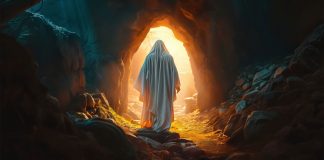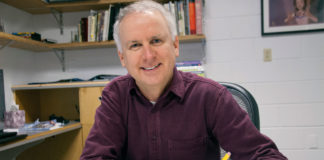The Dutch Arminians
On the continent jaded by an irrelevant religion, a new denomination appeared, in addition to the Lutheran, Calvinist, and Anglican Protestants—the Arminians.
The greatest love
The word sacrifice is not really a pleasant word. When you hear it, you may think of weird archaic rituals involving blood and animals. You may think of giving up something you love or like to save money or to save your waistline. Sacrifice is not a word we use often, and it’s often used with negative associations. But in a strange twist, the action...
The letter that did not get lost
Denisa Selagea has lost many things so far, from keys and phones to patience and opportunities. She has also lost sight of many words that needed to be said. So, this time, she thought she would stitch them onto paper before they got lost, to be read before it’s too late.
How do Christians deal with loneliness?
Divorce, widowhood, or celibacy are just a few of the faces of loneliness, an experience which Christians also deal with at some point. Those who have often crossed paths with it, say that loneliness is truly a flowering wilderness: a place that is isolated but where deep spiritual lessons are learned.
Conspiracy: from Lord of the Rings to the era of fake news
Towards the end of the Lord of the Rings trilogy, there is a final showdown between Frodo and Smeagol. Smeagol tries to regain possession of "My Precious", and when Frodo resists, Smeagol tries to strangle him. One scene in this part shows Frodo shocked that Smeagol has broken his promise and, though on the brink of death, sees fit to plead for honour:...
(Un)Interesting sermons and the forgotten art of listening to the Word
If we were asked how many of the thousands of sermons we’ve listened to in a lifetime were truly memorable, the answers might not be too encouraging for those called to share Scripture. Equally challenging, however, remains the way we prepare to be good listeners of the Word.
Steps through the darkness: a testimony of saving faith
Sinking into darkness, after 14 years of enjoying all the spectacles of grace and beauty in which our world is enveloped, can be the beginning of tragedy. Or it can be the moment when you begin to discern, nuance by nuance, the splendour of a reality that healthy eyes so often miss.
VIDEO: I talked to 10 people who are sick with COVID-19
They live in five European countries and could not be more different in age, interest or inclination. However, that made no difference. They were all infected. Some were not scared. Others were terrified. They have all gone through an experience that, without exception, has marked their lives.
Health begins with accurate information
A healthy lifestyle starts with acquiring information properly. In a world flooded with information, patients are often confused and overwhelmed by conflicting nutritional recommendations and spectacular promises about proposed diets. In this context, it is essential to assess the validity of information using well-established criteria.
The Second Coming Files: A 2000-Year Inquiry | Part V: Nineteenth-Century Millenarianism in the British Isles
After covering the historical evolution of the Christian teaching about the return of Jesus Christ in the first three articles, in the fourth article, which precedes the one that you’re reading now, I made a minimal review of some philosophical, political, religious, and esoteric currents that are important to understand the world in which the millenarian revivals of the 19th century emerged.
A second chance: faith in the forgiveness that transforms us
Many years ago, while I was still in high school, our Romanian language and literature teacher assigned us the task of writing a framed story, complete with characters and a plot of our choosing.
The Second Coming Files: A 2000-Year Inquiry | Part III: Modern Millenarianism
While the historic churches remained at least disinterested in millenarianism, the Apocalypse, and the Parousia—that is to say, when they were not hostile to them—Protestant pluralism allowed for both reluctance[1] and increasingly significant preoccupations with the research and publication of the themes regarding the end of the world.
Love and the second “Yes!”
They have read that love lasts for two or three years, and although they’ve gathered every possible argument why it wasn't the case for them, they couldn't get the possibility out of their minds altogether.
The risen Jesus
Was the death of Jesus the end of an extraordinary life, or just the beginning of eternal life for those who believe in Him?
The light that can make whales fly
Hendel Butoy was born in Brazil and raised in southern California. He studied at the California Institute of the Arts, and was then offered a position as an animator at Walt Disney in 1979.


























